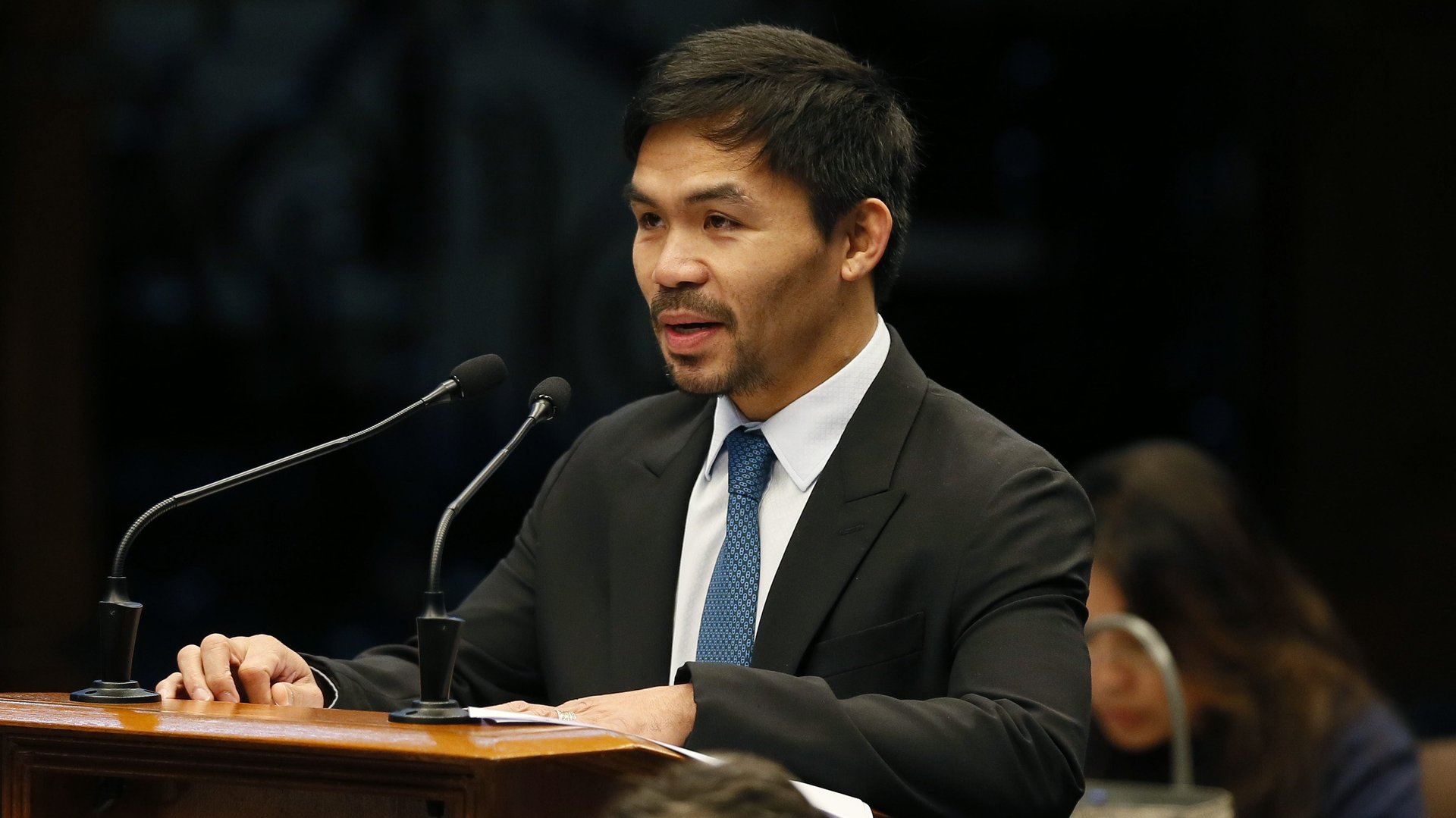Manny Pacquiao is the Philippines’ staunchest advocate for reinstating the death penalty
The Philippines is inching closer to reinstating the death penalty, which it abolished in 2006 (it was also the first country in the region to ratify a United Nations protocol against capital punishment), and the process is pitting a Bible-thumping boxer against the Catholic Church.


The Philippines is inching closer to reinstating the death penalty, which it abolished in 2006 (it was also the first country in the region to ratify a United Nations protocol against capital punishment), and the process is pitting a Bible-thumping boxer against the Catholic Church.
With a new death-penalty bill overwhelmingly passing the House of Representatives this week, it’s the Senate’s turn to vote. It will need a “yes” vote from 13 of the body’s 24 senators to be approved. In an interview with CNN Philippines, senator Franklin Drilon estimated that 10 of them will oppose the bill, which proposes bringing back capital punishment for drug-related crimes. But the pro camp has a crusader in the form of athlete-turned-politician Manny Pacquiao.
The eight-division world boxing champion is the staunchest supporter of the death penalty in the upper house. He wrote three bills to revive the death penalty and regularly uses religion to defend his stand.
In a speech last August he said, “Having read the Bible on a regular basis, I am convinced that God is not just a God of mercy, but he is also a God of justice.” He continued by quoting passages from the bible. He reiterated this in January while addressing the press and said “Even Jesus Christ was sentenced to death by the government.”
But these views are at odds with the pro-life stance of the Catholic Church, which opposes the reinstatement.
The president of the Catholic Bishops’ Conference in the Philippines (CBCP) countered Pacquiao’s argument and said that Jesus was innocent and a victim of the death penalty. “Though the crime be heinous, no person is ever beyond redemption, and we have no right ever giving up on any person,” the CBCP wrote in an official statement. The church has also publicly protested against the return of the death penalty and extrajudicial killings in the country’s war on drugs through a march and by adding a special prayer after every mass. The Philippines is a secular state but the CBCP has historically been very influential in the country’s political landscape.
Pacquiao left the Catholic Church to become a born-again Christian. Since his conversion, he has become more vocal about his conservative beliefs. In February 2016, he lost a sponsorship deal with Nike after describing people in gay relationships as “worse than animals.”
Pacquiao was serving his second term as congressman when he lost to Floyd Mayweather Jr. in 2015. He’s been criticized for his lack of education and political experience, as well as over his dedication to the job, but still won a seat in the Senate in the 2016 election.
Reinstating the death penalty was one of Rodrigo Duterte’s main promises in his campaign last year for the presidency. During Pacquiao’s birthday celebration in December, president Duterte said he will “execute criminals every day, five or six. That’s for real,” if the death penalty were reimposed.
Senators who are in favor of the reinstatement see it as an effective deterrent to would-be criminals. The version of the bill that passed the House only permits the death penalty for drug-related offenses after plunder, treason, and rape were removed from the list of punishable crimes.
Senate approval is the last step before the bill goes to Duterte for enactment.